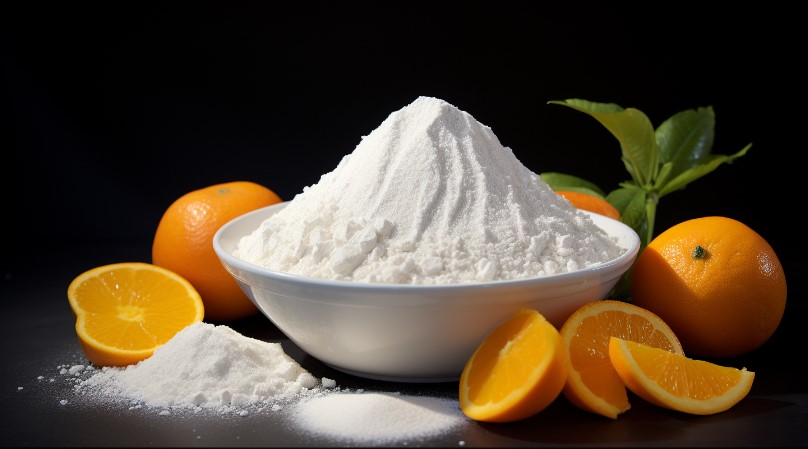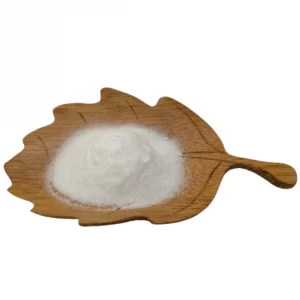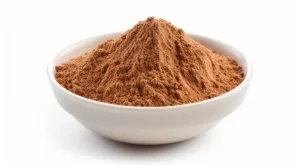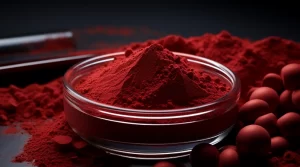천연 비타민 C가 합성 비타민 C보다 나은 이유

Are natural vitamin C and synthetic vitamin C the same thing? Today, we analyze the huge difference between natural and synthetic from the perspective of botany and life science.
Definition of “natural” and “synthetic”
(1) Synthetic vitamin C artificially prepared by chemical synthesis and other methods;
Second, natural vitamin C derived from fruits rich in vitamin C, such as lemon, acerola cherry, kiwi fruit, etc.
Vitamin C is actually very vulnerable, and other substances that have antioxidant effects and can provide electrons are needed to protect vitamin C from being destroyed.
For example, in the presence of copper ions, vitamin C is easily destroyed. Because copper ions promote the oxidation of vitamin C, bioflavonoids in plants, such as rutin, quercetin, flavonols and other components can provide electrons and complex with copper ions (reaction binding copper ions), which plays a protective role in vitamin C.
Differences in nutritional composition
A very important point mentioned in the literature is the composition difference between natural and synthetic sources of vitamin C. In fact, it’s not something people take for granted – vitamin C doesn’t make any difference.
The main component of both sources of vitamin C is ascorbic acid (vitamin C), but natural vitamin C has bioactive substances that synthetic vitamin C does not.
The main source of natural vitamin C is acerola cherry, kiwi, lemon and other fruits, which are very rich in nutrients.
In addition to vitamin C, it also contains phytochemicals such as phenols, carotenoids, alkaloids, nitrogen compounds, sulfur compounds, and other vitamins such as vitamin E, iron, phosphorus, calcium and other mineral elements.
These nutrients play an important role in the human body
Synthetic vitamin C contains only ascorbic acid and no other nutrients, while natural sources of vitamin C contain a variety of nutrients. In this paper, we also mention these less obvious but important nutrients.
Fruits such as citrus and acerola cherries are rich in carotenoids, and Godoy et al. reported that acerola cherries contain twice as much vitamin A as local peaches in Brazil. (Sidebar: Carotenoids are plant sources and precursors of vitamin A, converted into vitamin A in the body)
A large number of studies have proved that carotenoids are good for the human body, such as beta-carotene’s excellent antioxidant ability, providing electrons, blocking free radicals, delaying the generation of age-related macular disease, reducing the incidence of cardiovascular disease and lung cancer, skin cancer and other cancers.
2. Phenolic compounds Phenolic compounds are a large family, including phenolic acids, flavonoids, lignin, tannins and so on.
Flavonoids are the most abundant phenolic substances in the diet. In the 1930s, Szent-Gyorgyi’s research team discovered that flavonoids could enhance the biological activity of vitamin C and effectively cure scurvy in pigs, and named flavonoids vitamin P. Flavonoids have strong antioxidant capacity, which can clear free radicals in the body and delay lipid peroxidation.
Anthocyanins are a kind of natural pigments widely found in plants, which have strong antioxidant activity. In fruits with high vitamin C content such as acerola cherries, anthocyanins can effectively prevent vitamin C oxidation, thus playing a role in protecting vitamin C.
Studies have shown that the ability of scavenging DPPH free radicals when anthocyanin is combined with vitamin C is significantly higher than that when anthocyanin and vitamin C are used alone. Anthocyanins act synergically with vitamin C, and the DPPH free radical clearance rate is more than twice that of vitamin C alone.
DPPH is a very stable nitrogen-centered free radical and is used in laboratory studies as a typical in vitro antioxidant evaluation index. If the scavenging ability of DPPH free radicals is high, this ingredient has better antioxidant capacity.
Phenolic acid is a kind of organic acid containing phenolic ring. Phenolic acid compounds are the active ingredients of many Chinese herbs, which have the functions of scavenging free radicals, anti-inflammatory, antiviral, immunomodulatory and anticoagulant.
Like carotenoids, phenols provide electrons for the protection of vitamin C, making vitamin C better in some aspects (such as antioxidants, immune enhancement, etc.).
3. Natural Vitamin E Vitamin E is a fat-soluble vitamin that is one of the most important antioxidants. Vitamin E is also present in fruits rich in vitamin C, such as kiwi and acerola cherries. Studies have shown that vitamin E works synergistically with vitamin C to boost its antioxidant capacity.
In an in vitro antioxidant experiment, the researchers found that vitamin C and vitamin E synergistically prevented the oxidation of oil, and the peroxidation value of oil after 4 days of treatment was 35.3% lower than that of vitamin C alone.
In a number of human trials, it has also been confirmed that vitamin E can work together with vitamin C to reduce the oxidation degree of human low-density lipoprotein.
Vitamin E and vitamin C are a pair of sisters, grew up together, solidarity and mutual help. The two sisters work together, with the tacit understanding of both sides, bursting out a stronger potential.
In summary, we found that natural sources of vitamin C contain phenolic compounds, carotenoids, vitamin E and other components have their own unique effects, such as excellent antioxidant, enhance immunity, resistance to chronic diseases. And these substances can work synergistically with vitamin C to enhance its antioxidant activity.
Vitamin C is high in some fresh vegetables, but because vitamin C is soluble in water, vegetables are easy to lose vitamin C during cleaning; In addition, there are often pesticide residues in vegetables on the market at present, and most people are used to soaking before eating, so that the loss of vitamin C is more serious; Moreover, vitamin C is extremely unstable, easy to oxidize in the event of heat, and after stir-frying, boiling, and stewing of vegetables, almost no vitamin C remains.
Therefore, only through eating fruits and vegetables to obtain vitamin C, it is difficult to meet the needs of the human body, the appropriate selection of vitamin C supplements is necessary.
How to take vitamin C supplements
Vitamin C supplements on the market can be described as varied, only the content of each piece of vitamin C is different, dazzling, in the end, which is more reliable to eat?
In fact, there are also exquisite here. As mentioned earlier, vitamin C is water-soluble, if a large amount of one-time intake of vitamin C, excess vitamin C will be quickly discharged from the human body, resulting in waste.
Supplementation of vitamin C should follow the principle of “a small number of times”, that is, choose a supplement with appropriate vitamin C content (such as 250 mg/tablet) and eat it several times a day to improve the absorption rate and utilization rate of vitamin C.
Taking into account the convenience and effectiveness of consumption, choose a supplement containing 250 mg of vitamin C per piece, and eat 1-2 times a day to achieve not only the prevention of scurvy, but also the prevention of chronic diseases; In case of cold discomfort, you can appropriately increase the number of meals to help improve immunity and promote recovery
Choose the right vitamin C
1. Content is very important: Vitamin C supplements are appropriate to contain 250 mg per tablet, which is convenient for “small amount of fractional” supplementation to improve absorption and utilization rate.
2. Pay attention to the raw materials: it is better to choose supplements containing vitamin C extracted from sour unripe fruits (such as acerola cherries), which contain phytonutrients to promote the use of vitamin C, while having other health effects.
3. “Coating” is indispensable: vitamin C is water-soluble, is the most unstable of a vitamin, easy to be oxidized, in the case of air, heat, light is easily destroyed. Therefore, the use of good coating technology and coating materials is indispensable to protect the vitamin C in the supplement from loss.
4. Safe without additives: High-quality vitamin C should not be added artificial flavors, synthetic colors or preservatives.
참조:
Natural sources of vitamin C and synthetic vitamin C; Chang Cheng, Cao Feiwei, ZHENG Yangfan, Zhu Added, 2017, Modern Food.
Vitamin C Manufacturer /Vitamin C Manufacturers/Vitamin C Supplier /Vitamin C Suppliers/Vitamin C Factory:
전화: +86 (029) 8187 2325
이메일: [email protected]



